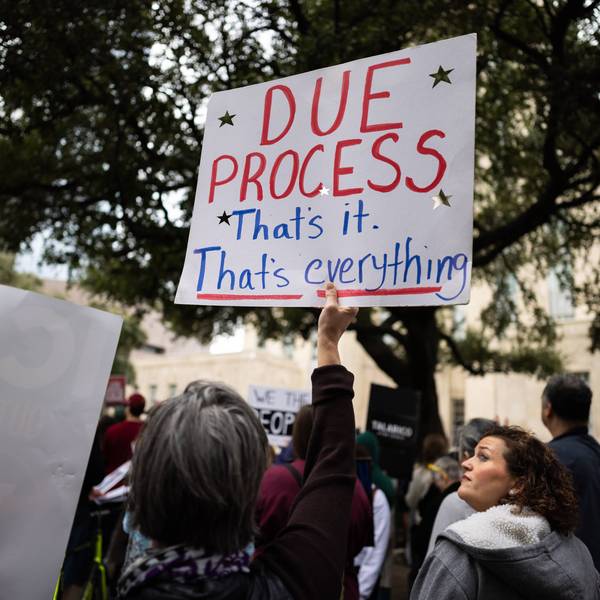The United Nations High Commissioner for Refugees on Monday urged the Biden administration to consider rescinding its proposed anti-asylum rule, which critics have compared to former President Donald Trump's "transit ban" that denied asylum to anyone who had traveled to the United States through a third country.
The Departments of Justice and Homeland Security last month proposed the new rule, which would subject asylum seekers to prompt deportation if they don't have "documents sufficient for lawful admission."
Migrants who pass through other countries en route to the U.S. without first claiming asylum there will be labeled ineligible to claim asylum at the U.S.-Mexico border—a violation of the internationally recognized right to seek asylum, said the UNHCR, echoing a number of refugee rights groups.
"As proposed, the regulation would restrict the fundamental human right to seek asylum for people who passed through another country and arrived in the United States without authorization," said the agency, which is headed by Filippo Grandi. "UNHCR is particularly concerned that, even with the regulation's grounds for rebuttal, this would lead to cases of refoulement—the forced return of people to situations where their lives and safety would be at risk—which is prohibited under international law."
"Key elements of the proposal are incompatible with principles of international refugee law," said the agency.
The UNHCR submitted comments on the proposed rule as part of the U.S. government's federal rule-making process. The public comment period for the proposal ends Monday.
The new rule, titled Circumvention of Legal Pathways, has been proposed to go into effect for two years after the expiration of Title 42, the pandemic-era policy which gave border agents the authority to expel immigrants at the southern U.S. border. Title 42 is currently scheduled to expire in May.
The UNHCR noted that the United States' mass denial of asylum for people arriving in the country after Title 42 expires would put strain on other countries which are already hosting millions of refugees.
"In line with the goals of the Los Angeles Declaration on Migration and Protection and other international commitments, it is essential that countries work together to secure collaborative and coordinated responses to increasing movements of refugees and migrants in the Americas," said the agency, referring to the 2022 agreement between Western Hemisphere countries that aimed to "create the conditions for safe, orderly, humane, and regular migration and to strengthen frameworks for international protection and cooperation."
The agency added that it is committed to supporting "broader reform efforts" regarding the U.S. immigration system aimed at improving "the fairness, quality and efficiency of the asylum system."
The UNHCR included recommendations for the U.S. system in its public comment, including:
- Introducing integrated border processing, reception, and registration to ensure asylum-seekers are identified as soon as possible after entering the U.S. and can be directed to the services they need, as well as helping to reduce overcrowding at ports of entry and minimizing delays and inefficiencies;
- Providing legal information, aid, and representation at the earliest possible stage to contribute to fairness and efficiency;
- Providing "non-adversarial adjudication," in which authorities could work with asylum applicants to "establish necessary facts and analyze them in accordance with international standards";
- Introducing "differentiated case processing modalities," in which straightforward cases with fewer legal or factual questions could be "streamed into accelerated and/or simplified procedures," allowing authorities "to enhance protection and build efficiencies by dedicating greater resources to the adjudication of complex claims."
"UNHCR stands ready to support these efforts throughout the region, including with the United States," said the UNHCR, "with a focus on genuine responsibility sharing, strengthening asylum systems and building safe pathways to protection and solutions."
The UNHCR has denounced the Biden administration's immigration policies in the past, warning in January that the president's expansion of Title 42—in which up to 30,000 people from specific countries would be sent to Mexico each month unless they met certain requirements—was "not in line with refugee law standards."




